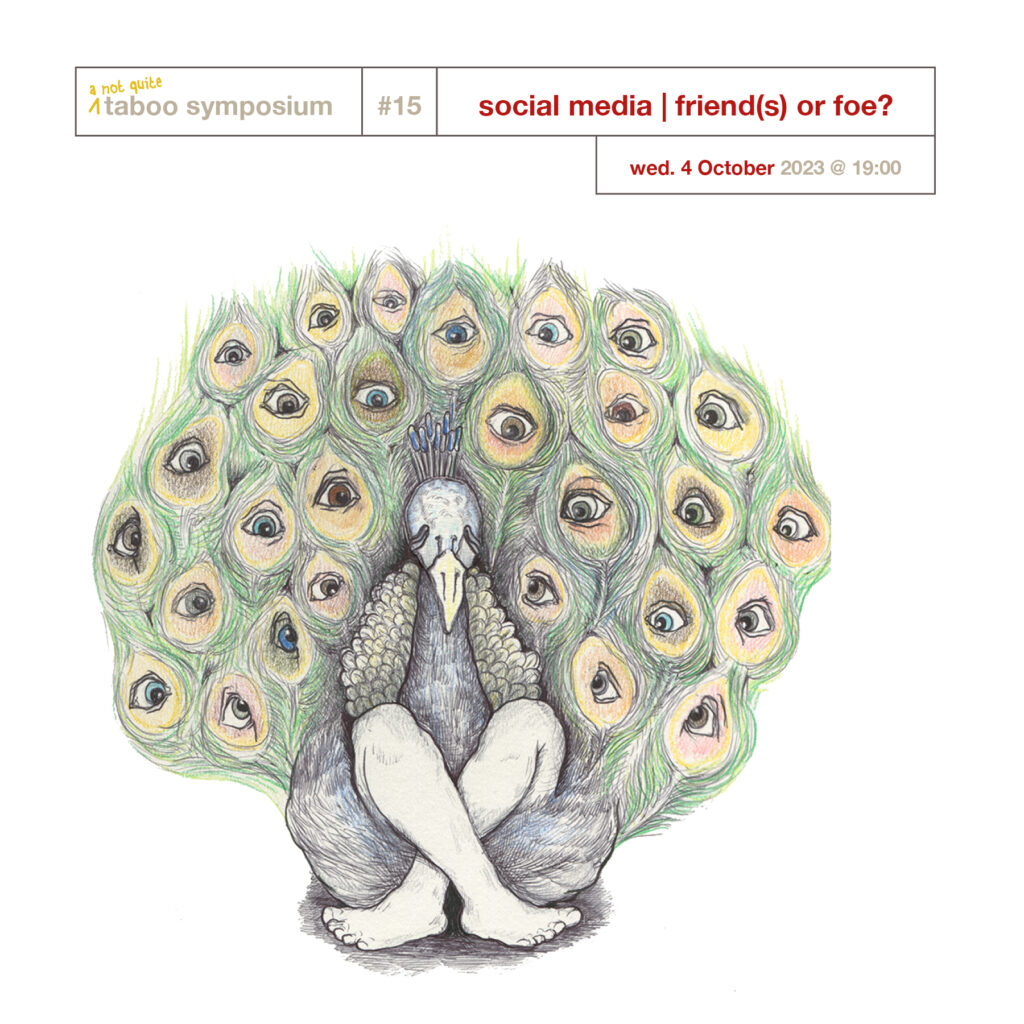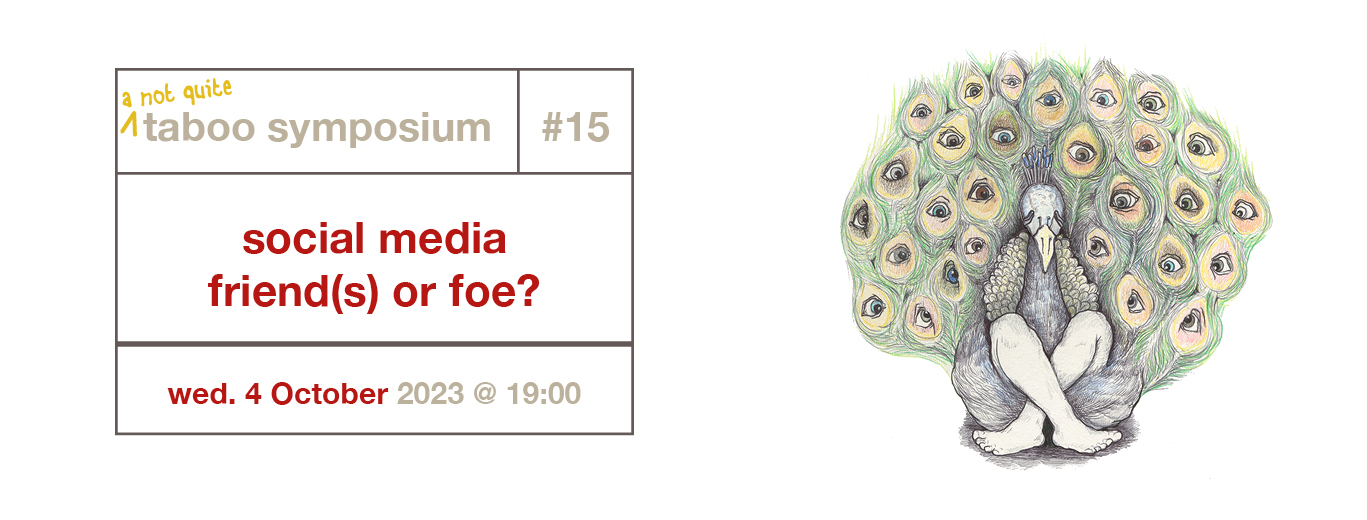
the agenda
This month we’re going to revisit the question of whether or not social media (including all the usual suspects and more) is (or has become) a scam.
Team A: we are autonomous beings, who bear sole responsibility for the stupidity of using all the apps being fed to us by tech giants.
Team B: While Team A might at some point have been correct, we’ve moved far beyond having a ‘choice’ in the matter, due to inadvertent peer pressure and socio-economic systemic infrastructures, which have made using these apps a non-choice.
Last month we seemed to have people on both sides of this equation, hopefully the same will prove true this time around.
related links | reading
a few random/related links on the topic:
A non-profit whose mission is to shift technology towards a more humane future that supports [humanity’s] well-being, democratic functioning, and a shared information environment.
your undivided attention (podcast)
a podcast by the Centre for Humane Technology, where ex-google ethicist Tristan Harris and Aza Raskin talk to all manner of humanists about the deeper implications of our speeding towards the digital apocalypse. (I particularly recommend the episodes with Senior Vice President of Curriculum and Content for Sesame Street Rosemary Truglio and with relationship psychotherapist Esther Perel)
The documentary breaking down just how much we are being manipulated by social media largely without our knowledge. When the (mainly) guys making this stuff don’t allow their own children to use it, something has gone wrong.
Neil Postman is a media theorist who nailed alot of our subservient behaviours towards earlier technology – particularly its influence on education. Check out ‘amusing ourselves to death’ and ‘the end of education’ to see how earlier technologies also managed to redefine western culture itself and how we relate to it and each other.
“Technopoly eliminates alternatives to itself in precisely the way Aldous Huxley outlined in Brave New World. It does not make them illegal. It does not make them immoral. It does not even make them unpopular. It makes them invisible and therefore irrelevant. And it does so by redefining what we mean by religion, by art, by family, by politics, by history, by truth, by privacy, by intelligence, so that our definitions fit its new requirements. Technopoly, in other words, is totalitarian technocracy.“
Attention Hacking – How we’ve all lost control of our minds | Tim Wu
A youtube discussion about material in Tim Wu’s book The Attention Merchants. Wu points out that army propaganda before WWI started a trend towards industrialising human attention capture, which has become refined to terrifying proportions in today’s social media industries.
The End of Solitude | William Deresiewicz
Deresiewicz points out the the contemporary self wants to be recognised by others (prompted in large part by the advent of social media), and as a result lives increasingly in relation to others, even when we are not in the actual company of others:
“Visibility secures our self-esteem, becoming a substitute, twice removed, for genuine connection. Not long ago, it was easy to feel lonely. Now, it is impossible to be alone.”
